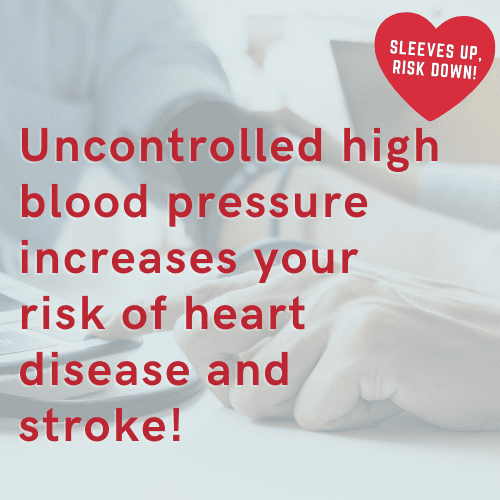[vc_row][vc_column][vc_single_image image=”13752″ img_size=”full” alignment=”center”][/vc_column][/vc_row][vc_row][vc_column][vc_column_text]The Croí Third Age Mayo project, which aims to promote healthy cardiovascular ageing, will mark World Hypertension Day (May 17) with a free public webinar with expert speakers discussing how participants can manage their high blood pressure. The webinar will take place lunchtime on Thursday, May 20 from 1-2 pm with expert speakers including, Prof Bill McEvoy, Consultant Cardiologist, University Hospital Galway; Dr Barry McDonnell, Cardiovascular Physiologist, Cardiff Metropolitan University; and Dr Gerry Molloy, Health Psychologist, NUI Galway. Register for free here.
In a separate initiative from May 17, Croí Third Age Mayo will partner with ten local pharmacies as part of a blood pressure measurement pilot programme. This initiative will see free blood pressure checks offered throughout the week to people over 55 years of age who have not had their blood pressure checked in the past year. Members of the public found to have high blood pressure will be offered advice and information, as well as the opportunity to take part in a free blood pressure management programme, delivered by the Croí multi-disciplinary health team.
The pharmacies participating in the pilot programme are Molloy’s Pharmacy in Ballina, Crossmolina, Ballaghaderreen and Achill, Treacy’s Pharmacy in Castlebar, Westport and Ballinrobe, and O’Donnell’s Pharmacy and McVann’s Pharmacy in Westport.
People over 55 years of age interested in a free blood pressure check can simply contact one of the participating pharmacies to book an appointment, which are subject to availability. Further information on Croí Third Age Mayo, and this pilot programme, can be found at croi.ie/third-age-mayo-bp. The blood pressure measurement programme will expand to include more pharmacies in the county with further checks to be held later in the year.[/vc_column_text][vc_separator][vc_column_text]
High Rates of High BP
Mayo is among the counties in Ireland with the highest proportion of people over 55 years of age, having almost a third of the population in this age category. Between 30-40% of people in Ireland are unaware that they have high blood pressure. Ireland has one of the highest rates of high blood pressure internationally, but among the lowest levels of diagnosis, treatment and control of the condition.
For Croí Chief Executive, Neil Johnson, this initiative marks the beginning of a county-wide effort to improve our cardiovascular health: “One of the many impacts of the COVID-19 pandemic has been reduced access to routine health checks, with implications for delayed detection and treatment of cardiovascular risk factors such as high blood pressure. We are delighted therefore to announce this pilot initiative marking World Hypertension Day. Starting with a pilot among these ten pharmacies, our aim is to then spread the blood pressure message far and wide across the county of Mayo in the coming months with other blood pressure management events.”[/vc_column_text][vc_separator][vc_cta h2=”Own it. Check it. Sort it.” h4=”Five Things You Should Know in Taking Control of Your Blood Pressure.”]
- Be informed. High blood pressure, also known as hypertension, happens when the force of the blood flowing through your blood vessels is too high. Left untreated, it can significantly increase the risk of having a stroke or heart attack.
- Get checked out. Known as a silent killer, high blood pressure usually has no symptoms. So, the only way to know if you have high blood pressure is to have it checked out.
- Know your pressure. If over 55 years, you should have your blood pressure checked at least once a year. The recommended target level for blood pressure is <140/90 mmHg, however, if you have diabetes, heart disease, kidney disease, or have previously had a stroke, you may be prescribed a lower target.
- Minimise the risks. There are steps you can take to lower blood pressure, by maintaining a healthy weight and becoming more physically active, stopping smoking, avoiding added salt, drinking alcohol in moderation, increasing your intake of fruit and vegetables, and learning ways to cope with stress.
- You can be treated. If lifestyle measures on their own are not effective in keeping your blood pressure under control, then you may need to take prescribed medications in addition. These are usually for the rest of your life.
[/vc_cta][/vc_column][/vc_row]
